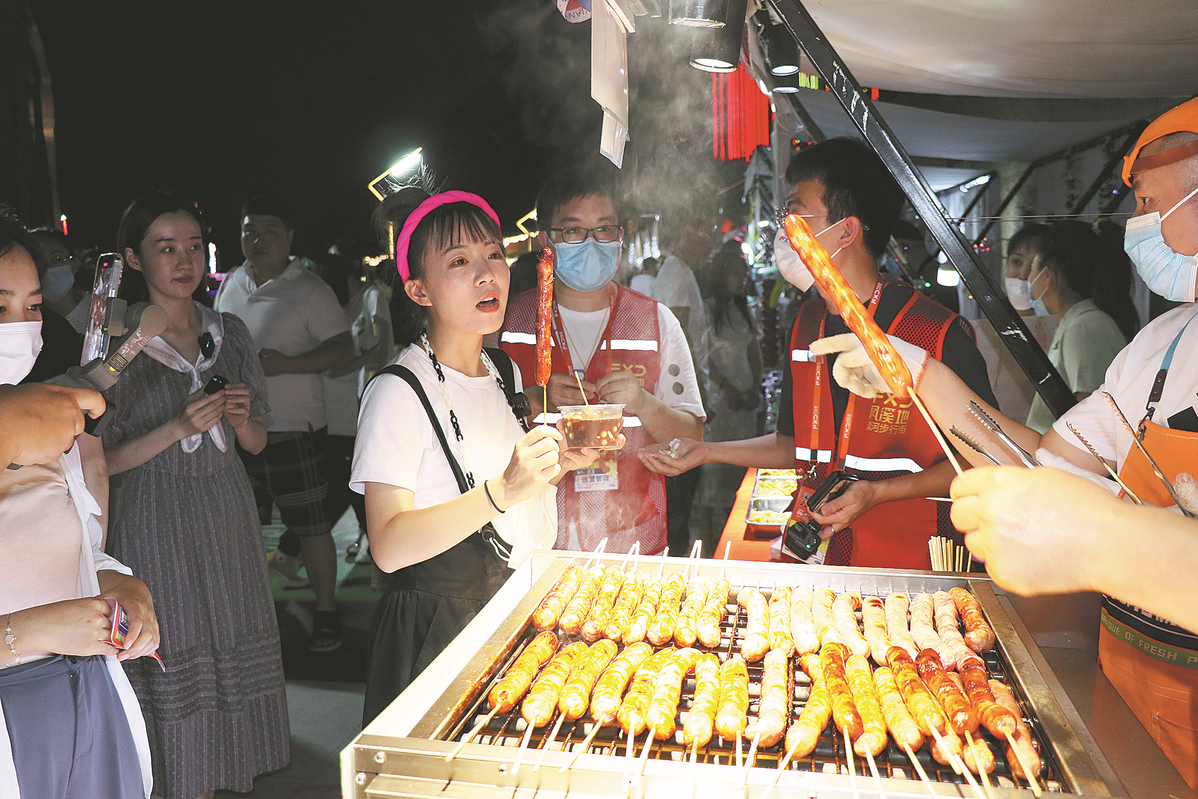City treads safely, smartly in cooking gas usage


At a bustling food mall in Changyi, a county-level city in Weifang, Shandong province, a lively scene unfolds as people flock to dine.
What immediately captures their attention is the absence of traditional liquefied petroleum gas cylinders once favored by food stalls and small eateries.
This is because of a safer and more advanced alternative — smart LPG cylinders.
"The government has helped replace the old gas bottles with smart ones, which can ensure safety in operations; we finally feel relieved," said the owner of a barbecue diner surnamed Xu.
In recent years, safety concerns related to bottled LPG have garnered significant attention across the country due to their innate risks.
To address the challenge of using LPG cylinders safely, the existing market system has been innovatively transformed.
"Previously, small-scale companies usually dealt with bottled LPG businesses. They tended to be weak in management capabilities and safety controls," said Liang Yongyan, director of Changyi's housing and urban-rural development bureau.
Following a market-oriented approach to integrated development, the city has built standardized LPG stations with investments from State-owned companies.
Under a unified management of specialized firms, the stations are now at the forefront in scale, volume, as well as standardization and intelligence levels in Shandong, Liang said.
A platform for LPG cylinder trade-in services has also been established, exploring new methods such as cash discounts for old cylinders and leasing arrangements for new ones.
The initiative has so far successfully replaced a large number of potentially risky cylinders with new and reliable cylinders that adhere to technical specifications on safety, the local government said.
Digital technology plays a crucial role in fortifying gas safety as well.
Through an intelligent LPG cloud supervision system, over 70,000 LPG cylinders have now been equipped with chips and QR code labels under an innovative move for LPG usage digitalization, according to data from the Changyi government.
Such smart cloud platforms enable "early detection and early response" in case of fire accidents, and mitigate the risk of major accidents caused by gas leaks, said industry experts.
The implementation of a "one cylinder, one chip, one code" system ensures traceability and evaluation throughout the entire circulation process of LPG cylinders.
Every stage — from filling, transportation, sales, distribution, utilization, to recycling — undergoes full-process recording and inspection, with data from various sources being collected and analyzed on the cloud.
Over 100,000 pieces of data have been gathered through the full life cycle system so far, the Changyi government said.
This well-structured market system has given rise to the concept of a"15-kilometer service circle" for LPG usage.
The streets of Changyi are now adorned with uniformly shaded yellow gas delivery vehicles, with delivery personnel providing door-to-door delivery of smart gas bottles.
The services also include domestic inspections and professional consultations for gas usage, resolving the "last mile" challenge in safe LPG distribution.
"Now, whenever we encounter gas-related problems, a single customer service call will bring doorstep service," said a Changyi resident surnamed Jiang.
Gas safety coordinators also carry out inspections on a regular basis, significantly enhancing the safety level.
Furthermore, the city is also exploring the implementation of a "firewall" service model in LPG management — over 10 industry experts, 40 professional technicians, 80 gas delivery personnel, and 800 grassroots gas safety coordinators together serve as a firewall against bottled LPG risks.
Aiming to prevent as many accidents as possible in the end-use phase, they conduct regular inspections for both household and business gas users, adhering to standards of no less than two visits for households and four visits for business users within a year, said the Changyi government.




































